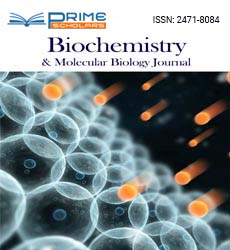Perspective - (2023) Volume 9, Issue 4
The Significance of Nucleic Acids in Evolution
Harden Warner*
Department of Biochemistry, University of Strathclyde, United Kingdom
*Correspondence:
Harden Warner,
Department of Biochemistry, University of Strathclyde,
United Kingdom,
Email:
Received: 01-Aug-2023, Manuscript No. IPBMBJ-23-17668;
Editor assigned: 03-Aug-2023, Pre QC No. IPBMBJ-23-17668 (PQ);
Reviewed: 17-Aug-2023, QC No. IPBMBJ-23-17668;
Revised: 22-Aug-2023, Manuscript No. IPBMBJ-23-17668 (R);
Published:
29-Aug-2023, DOI: 10.36648/2471-8084-9.04.37
Introduction
Nucleic acids, namely DNA (Deoxyribonucleic Acid) and RNA (Ribonucleic
Acid), are not just molecular blueprints for life; they are
also critical players in the grand scheme of evolution. Over billions
of years, these molecules have orchestrated the development, adaptation,
and diversification of life on Earth. In this article, we will
delve into the fascinating world of nucleic acids and their profound
significance in the process of evolution.
Description
Nucleic acids, especially DNA, are the repositories of genetic information. They store the instructions that guide the development and functioning of living organisms. What makes nucleic acids truly remarkable is the universality of the genetic code. Almost all known life forms on Earth use the same genetic code to translate nucleic acid sequences into proteins. This universal language of nucleic acids is compelling evidence of a shared ancestry among all living organisms. The genetic code consists of codons, three-nucleotide sequences that specify particular amino acids. These codons serve as the bridge between the information stored in nucleic acids and the proteins that execute various cellular functions. The conservation of this genetic code across species highlights the profound role of nucleic acids in shaping the diversity of life. One of the driving forces behind evolution is genetic mutation, which is the result of changes in the nucleotide sequences of DNA. Mutations can occur for various reasons, including environmental factors, errors in DNA replication, and even radiation exposure. While some mutations are harmful and may lead to diseases or genetic disorders, others can be beneficial and provide an advantage in specific environments.
Natural selection acts upon these mutations, favoring those that enhance an organism’s ability to survive and reproduce. Over time, this process leads to the accumulation of advantageous traits within a population, ultimately resulting in the evolution of new species. Nucleic acids are central to this mechanism, as they not only carry the mutations but also serve as the template for the replication of these genetic changes during cell division. Nucleic acids also serve as molecular clocks that allow scientists to estimate the timing of evolutionary events. Over time, mutations accumulate in the nucleotide sequences of DNA and RNA at relatively constant rates. By comparing the differences in nucleotide sequences between species or populations, researchers can estimate when their common ancestors lived. Nucleic acids play a pivotal role in facilitating adaptation by preserving genetic diversity within populations. This diversity is essential because it provides the raw material for evolution to act upon. In a changing environment, individuals with certain genetic variations may have a better chance of survival and reproduction, ultimately leading to the spread of these advantageous traits.
Conclusion
The significance of nucleic acids in evolution cannot be overstated.
These molecules store the genetic information that ties all living
organisms together through a shared genetic code. They are the
canvas upon which mutations are painted, and natural selection
acts as the brush that shapes life’s diverse forms. Nucleic acids
also serve as molecular clocks, allowing us to trace the timelines
of evolutionary events, and they play a crucial role in adaptation
and genetic diversity within populations.
Citation: Warner H (2023) The Significance of Nucleic Acids in Evolution. Biochem Mol Biol J. 9:37.
Copyright: © 2023 Warner H. This is an open-access article distributed under the terms of the Creative Commons Attribution License, which permits unrestricted use, distribution, and reproduction in any medium, provided the original author and source are credited.

